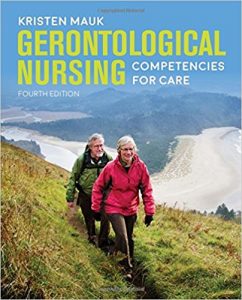Engaging the Faith-Based Nurse: Exploring Nursing as Ministry.
Listen to the webinar from authors Kristen Mauk and Mary Hobus, Engaging the Faith-Based Nurse: Exploring Nursing as Ministry.
Nursing as Ministry provides the foundations of Christian nursing as ministry, taking an interprofessional perspective with 29 contributors from backgrounds in theology, nursing, medicine, social work, and pastoral ministry. Designed to be a student-friendly textbook for faith-based schools, this first edition text focuses on the spiritual aspects of patient care, providing practical information ministering to specific populations. The reader is guided through topics such as homelessness, substance abuse, community health, vulnerable elders, prison ministry, culturally sensitive care, and more. Additionally, the text is designed to guide the reader through their own spiritual journey, with personal reflection questions in each chapter to help students and nurses to internalize the content.
With a need for a contemporary, evidence-based text on nursing ministry, this first edition offers an abundance of resources including critical reasoning exercises, interviews with nurse leaders, case studies, suggestions for faith integration in daily nursing care, and more.
Features and Benefits:
Video interviews with Christian nursing leaders
Scripture integrated throughout the chapters
Personal stories of nurse leaders woven throughout the text
Navigate 2 Advantage Access
Each new print copy includes Navigate 2 Advantage Access, unlocking a comprehensive and interactive eBook, student practice activities and assessments, a full suite of instructor resources, and learning analytics reporting tools.


